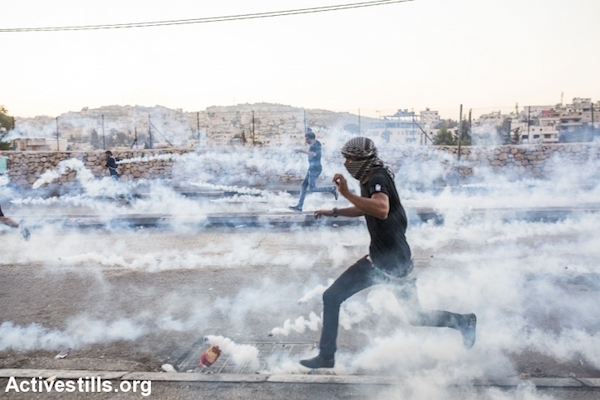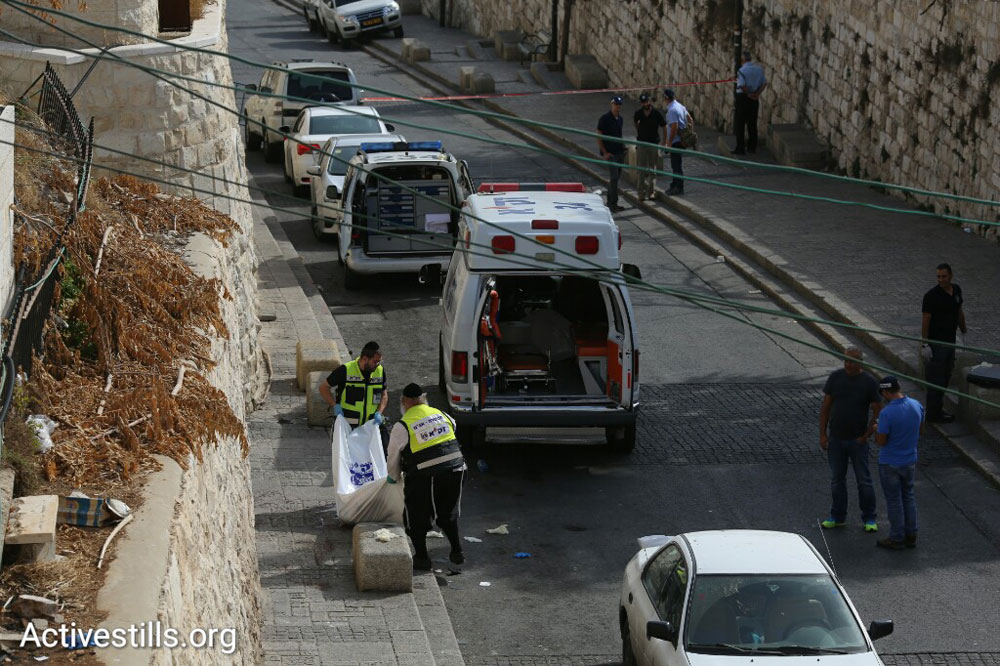There is something about the way that Israelis and Palestinians are discussing the violent events of recent weeks that suggests a new, particularly worrying dissonance between the two societies.

The Israeli-Palestinian conflict has always included a full-fledged war of narratives. From biblical and historical land claims, to the creation of the Palestinian refugee problem, to who started the 1967 war, to whether it’s a security fence or an apartheid wall, common ground is often nowhere to be found.
And yet, there is something about the way that Israelis and Palestinians are discussing the violent events of recent weeks that suggests there is a new, particularly worrying dissonance between the two societies on the most basic factual terms of reference.
Many Palestinians — as well as Palestinian media outlets in Israel, the West Bank and the diaspora — believe that the several dozen people shot dead by police while, or after carrying out stabbing attacks, were murdered in cold blood. There are varying levels of nuance, but the general narrative is that Israelis and Israeli security forces are executing Palestinians on the streets and then inventing stories of stabbings or attempted stabbings in order to justify the deadly shootings.
Israelis, meanwhile, are more and more willing to ignore assaults and unnecessary killings carried out by their security forces, violent attacks by groups of West Bank settlers, and to express complete contempt for the very idea that Palestinians might have valid concerns about violations of Al-Aqsa Mosque compound.
The distrust and disbelief of the “other side’s” narrative is nothing new, and both Palestinians and Israelis have ample excuses to distrust one another. Two examples from recent years come to mind.
The first was the murder of two Palestinian youths in the West Bank town of Beitunia in May of last year. Despite video evidence of the shootings, the entire Israeli establishment came out to deny responsibility and question whether the two youths were even dead. An Israeli Border Police officer was eventually charged with manslaughter in the case but only much later, after additional footage and forensic evidence appeared.
The second example came just a few weeks later: the kidnapping and murder of three Israeli teenagers at a West Bank hitchhiking post. While Israel exploited the kidnappings to carry out a massive military operation, many Palestinians publicly speculated that the three teens hadn’t actually been kidnapped or killed and that the whole affair was something between a false-flag operation and an entirely fabricated excuse to invade the West Bank and Gaza.

And yet the dissonance surrounding the divergent narratives of the recent stabbings and accompanying police shootings feels different somehow. It reminds me a little of the racial divide in the United States during the OJ Simpson trial. White America was certain he was guilty. Black American was certain he was innocent, or at least that he should be acquitted.
The Simpson case is telling because it was more about narrative and symbolism than facts or evidence. OJ Simpson was a symbol, a rallying cry even, a rare case in which a black man had a chance of surviving a criminal justice system so hellishly stacked against people of color. Without the context of discrimination, unbelievable incarceration rates of black men and no accountability for police violence against people of color, rallying behind a man accused of murder might not make as much sense. But context is everything.
Palestinians are rejecting the Israeli version of the recent stabbing attacks and police shootings largely because of the context: a long history of state — and civilian — violence against Palestinians, almost always without any accountability. From the Kafr Qassem massacre to the Jewish Underground to Beitunia to the deadly police shootings in Kafr Kanna and Rahat last year to the still-unsolved murder in Duma, Palestinians have no reason to believe that the State of Israel values Palestinian lives. It only follows, then, that there is no reason to believe Israel’s justifications for killing Palestinians.
Likewise, President Abbas last week gave Israelis yet another reason not to trust him and the Palestinian narrative when he claimed that Israel had executed a 13-year-old boy in Jerusalem. So when Prime Minister Netanyahu latched onto Abbas’s — quickly retracted — accusation, describing it as yet another case of dangerous and malicious incitement by Palestinian leaders, no Palestinians really cared. Perhaps it is because in gloatingly proving that Israel didn’t kill this 13-year-old boy, Netanyahu didn’t even mention the four other Palestinian boys under the age of 15 that Israel did kill this month (one in Aida refugee camp, one in Jalazoun refugee camp, and two in Gaza — one in a shooting and a second in a bombing).
It would be unreasonable and naïve to expect Israelis and Palestinians to adopt a common narrative or even common language. After all, history is written by the victor, and if you ask me, neither Israelis nor Palestinians are winning anything these days.


